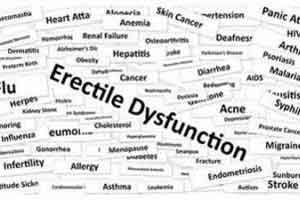- Home
- Editorial
- News
- Practice Guidelines
- Anesthesiology Guidelines
- Cancer Guidelines
- Cardiac Sciences Guidelines
- Critical Care Guidelines
- Dentistry Guidelines
- Dermatology Guidelines
- Diabetes and Endo Guidelines
- Diagnostics Guidelines
- ENT Guidelines
- Featured Practice Guidelines
- Gastroenterology Guidelines
- Geriatrics Guidelines
- Medicine Guidelines
- Nephrology Guidelines
- Neurosciences Guidelines
- Obs and Gynae Guidelines
- Ophthalmology Guidelines
- Orthopaedics Guidelines
- Paediatrics Guidelines
- Psychiatry Guidelines
- Pulmonology Guidelines
- Radiology Guidelines
- Surgery Guidelines
- Urology Guidelines
Statins and BP lowering medicines don't cause Erectile dysfunction

Erectile dysfunction (ED) affects about 40 percent of men over 50 years old and is more common in men with cardiovascular risk factors. It is understood that men having treatment of high blood pressure and high cholesterol are at enhanced risk of Erectile dysfunction (ED).But a new study published in the Canadian Journal of Cardiology it has been concluded that statins and blood-pressure medicines like candesartan/HCTZ do not adversely affect erectile function.
"Previous research suggests that cardiovascular risk factors such as high blood pressure and cholesterol increase the risk of ED, but there has been little research examining whether modifying these risk factors can impact its development," explained lead investigator Philip Joseph, MD, Assistant Professor of Medicine at McMaster University, Hamilton, Ontario, Canada.
Investigators evaluated the consequences of cholesterol lowering with a statin, pharmacologic blood pressure reduction, and a combination of the two, on erectile function. This was a substudy of the Heart Outcomes Prevention Evaluation - 3 (HOPE-3) randomized controlled trial, a 2x2 factorial randomized controlled trial testing candesartan/HCTZ versus placebo, rosuvastatin versus placebo, and the combination of these medications versus double placebo. Erectile function was measured using a questionnaire (the International Index of Erectile Function [IIEF] questionnaire) completed by more than 2,000 men at the beginning of the study and again at a mean follow-up of 5.8 years. The IIEF is a validated, 15-item questionnaire to assess five domains of ED over the previous four-week period.
During the study, none of the treatment groups were associated with a significant change in erectile function when compared to their respective placebo groups. Neither blood pressure lowering with candesartan/HCTZ nor cholesterol lowering with a statin showed an impact on erectile function. Importantly, taking these medications were not associated with the development of ED.
"This study shows that lowering these critically important cardiac risk factors using these medications has little impact on changes in erectile function," commented Dr. Joseph. "Men who develop ED while on such medications commonly attribute their symptoms to the medications. Our findings suggest that these two medications do not negatively impact erectile function, which should be reassuring to men who are taking them." This is an important finding because doctors can reassure patients that their ED is almost certainly not related to these medications, which have been well-shown to prevent major complications of heart disease, and encourage them to continue to take them.
"Patients who express concern about ED should be reassured about the lack of impact with statins or the combination of angiotensin receptor blocker/thiazide," wrote G.B. John Mancini, MD, FRCPC, FACC, Professor of Cardiology in the Department of Medicine, University of British Columbia, Canada, in an accompanying editorial. "But, perhaps, more importantly, they need to be assessed more comprehensively and directed to and/or instructed in the safe use of phosphodiesterase-5 inhibitors when appropriate and when nitrates are not being used. The current study provides strong motivation for cardiologists to develop confidence and competence in the overlap between the quality of life as reflected by male sexual health and reduction of cardiovascular risk."

Disclaimer: This site is primarily intended for healthcare professionals. Any content/information on this website does not replace the advice of medical and/or health professionals and should not be construed as medical/diagnostic advice/endorsement or prescription. Use of this site is subject to our terms of use, privacy policy, advertisement policy. © 2020 Minerva Medical Treatment Pvt Ltd